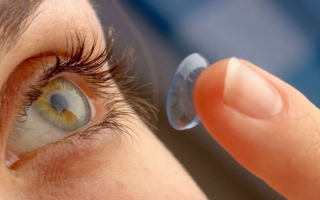
The use of contact lenses can cause various corneal complications, such as keratitis and problems with corneal retention. Additionally, people with dry eye syndrome, such as allergic conjunctivitis, intrinsic dry eye, and meibomian gland dysfunction (meibomian gland disease), are not recommended to use them. Therefore, contact lenses should only be worn after the treatment of inflammation. "Anatomical features of the eye should be taken into account. This also includes seasonal allergies and the intake of certain medications, such as diuretics, steroids, or anti-allergic agents, since all these factors can exacerbate dry eyes and worsen the condition of the cornea," notes the specialist. When selecting a method for correcting vision with contact lenses, it is necessary to consider the physiological characteristics of the eye and potential complications.
Patients with diabetes, asthma, tuberculosis, viral immunodeficiency, and psychiatric disorders are prohibited from using them. "It is recommended to refrain from using lenses during illness, such as acute viral respiratory infections and flu, as well as during outbreaks of herpes infections and during sinusitis flare-ups. However, they do not apply to all due to certain contraindications," adds the specialist. One of the main obstacles to the use of contact lenses is the presence of ocular pathologies, such as conjunctivitis, keratitis, and age-related dermatitis.
Contact lenses have become a popular and effective means of vision correction, which many prefer over glasses. They are not recommended for use in severe ocular pathologies, such as conjunctivitis, keratitis, herpes keratitis, and others. Various factors, including the characteristics of the visual apparatus, can influence the selection of contact lenses and their potential complications.














